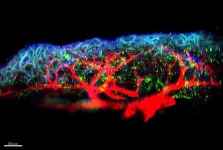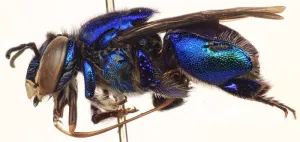(Press-News.org) INDIANAPOLIS – No one associated with nursing homes – as residents or their families, friends, staff or administrators – is unaware of the massive impact of the pandemic on these facilities which provide essential services to a growing number of older adults, many living with cognitive impairment.
In “Learning from the experience of dementia care for nursing home residents during the pandemic,” an editorial published in the Journal of the American Geriatrics Society, Regenstrief Institute and Indiana University School of Medicine researcher-clinician Kathleen Unroe, M.D., MHA, M.S., and University of Utah College of Nursing faculty member Gail Towsley, PhD, NHA, focus on the continual need to integrate quality dementia-specific care into nursing homes.
“Nursing home leaders [during the pandemic] had to balance competing demands including pressures to off-load hospitals by admitting new patients, as well as responsibilities to protect staff and established residents. The constant assessment of risks versus benefits often resulted in trade-offs between safety (or at least, what was believed at the time provided safety) and quality of life,” the editorial notes.
The authors highlight the uncertainties and stressors faced by extended care providers and those for whom they care, focusing on challenges including resident social isolation, staff recruitment, training and retention as well as the troublesome conflict between best practice infection control and best practice dementia care.
“A majority of people who receive care in nursing homes have cognitive impairment,” said Dr. Unroe. “High-quality care for people with cognitive impairment, including people with a diagnosis of dementia, should be person-centered, which requires knowing a person's goals for their care and their treatment preferences and making sure that those goals and preferences are documented and then met, including for those with limited ability or even no ability to participate in these discussions anymore.
“People in nursing homes are, by the nature of living in a nursing home, often isolated from their community, their prior neighborhoods and contacts as well as their families,” she added. “We need to take extra steps to make sure that we maintain these important connections, making it as easy as possible for people to come and participate in life in the nursing home and for people to be able to leave the facility and participate in life in their neighborhoods and with their families.”
According to Dr. Unroe, the pandemic highlighted:
Need for dementia care specific staff training
Value of telehealth communication
Importance of expansion of family’s role in nursing home care
In 2022, the National Academies of Sciences, Engineering and Medicine issued “The National Imperative to Improve Nursing Home Quality,” which noted “the devastating impact of the COVID-19 pandemic on nursing home residents and staff has renewed attention to the long-standing weaknesses that impede the provision of high-quality nursing home care.” The report calls for the Centers for Medicare and Medicaid Services (CMS) and states to improve oversight of nursing homes to avoid a repeat of failures that occurred during the COVID-19 pandemic.
Highlighting the importance of exploration of opportunities to “coalesce around solutions” to solve persistent challenges in nursing home settings, Drs. Unroe and Towsley conclude, “While the pandemic included lessons we wish we did not have to experience, we have an opportunity to shift our practices and re-focus on high quality dementia care.”
Kathleen Unroe, M.D., MHA, M.S.
In addition to being a research scientist with the Indiana University Center for Aging Research at Regenstrief Institute, Kathleen Unroe, M.D., MHA, M.S., is an associate professor of medicine at Indiana University School of Medicine and a practicing geriatrician. Dr. Unroe is the founder and an executive officer of Probari, a healthcare start-up supporting nursing home care.
END
Improving dementia care in nursing homes: Learning from the pandemic years
2024-04-10
ELSE PRESS RELEASES FROM THIS DATE:
Respiratory allergies: newly discovered molecule plays a major role in triggering inflammation
2024-04-10
The inflammation process plays a crucial role in allergic respiratory diseases, such as asthma and allergic rhinitis. Although the pulmonary epithelium, the carpet of cells that forms the inner surface of the lungs, is recognised as a major player in the respiratory inflammation that causes these diseases, the underlying mechanisms are still poorly understood.
A research team has identified one of the molecules responsible for triggering these allergic reactions, in a study co-led by two CNRS and Inserm scientists working at l’Institut de pharmacologie et de biologie structural (CNRS/Université Toulouse ...
A BiCIKL ride to the Empowering Biodiversity Research conference for a report on a 3-year endeavor towards FAIR biodiversity data
2024-04-10
Leiden - also known as the ‘City of Keys’ and the 'City of Discoveries' - was aptly chosen to host the third Empowering Biodiversity Research (EBR III) conference. The two-day conference - this time focusing on the utilisation of biodiversity data as a vehicle for biodiversity research to reach to Policy - was held in a no less fitting locality: the Naturalis Biodiversity Center.
On 25th and 26th March 2024, the delegates got the chance to learn more about the latest discoveries, trends and innovations from scientists, as well as various stakeholders, including representatives of policy-making bodies, research institutions and infrastructures. ...
Visiting white parts of town make some Black kids feel less safe
2024-04-10
COLUMBUS, Ohio – Some Black youth feel less safe when they visit predominantly white areas of their city, a new study in Columbus has found.
And it was those Black kids who spent the most time in white-dominated areas who felt less safe, said Christopher Browning, lead author of the study and professor of sociology at The Ohio State University.
“Familiarity with white neighborhoods doesn’t make Black kids feel more comfortable and safer. In fact, familiarity seems to reveal ...
Deforestation harms biodiversity of the Amazon’s perfume-loving orchid bees
2024-04-10
LAWRENCE — A survey of orchid bees in the Brazilian Amazon state of Rondônia, carried out in the 1990s, is shedding new light the impact of deforestation on the scent-collecting pollinators, which some view as bellwethers of biodiversity in the neotropics.
The findings, from a researcher at the University of Kansas, are published today in the peer-reviewed journal Biological Conservation.
“This study on orchid bees was an add-on to previous research on stingless bees. Orchid bees are so easy to collect, so we added them to ...
Long-term satellite observations show climatological characteristics of isolated deep convection over the Tibetan Plateau
2024-04-10
The Tibetan Plateau is a prevalent region for deep convection owing to its unique thermodynamic forcing. Deep convection can exist as isolated deep convection (IDC), which is small in size, or mesoscale convective systems (MCSs), which are convective storms organized into larger and longer-lived systems. Most previous research has focused on MCSs over the Tibetan Plateau, but less so on IDC systems (hereafter, IDCs).
Dr. Ying Na from Wuxi University, and Dr. Chaofan Li from the Institute of Atmospheric Physics, Chinese Academy of Sciences, China, examined the climatological features of IDCs by using high-resolution satellite observations in June to September ...
Modeling viral evolution: A novel SIRSVIDE framework with application to SARS-CoV-2 dynamics
2024-04-10
Understanding the mutation and evolution of viruses (such as SARS-CoV-2) is crucial for effective public health management and response. Traditional epidemiological models often assume that viral transmissibility and pathogenicity remain constant during disease transmission, ignoring the fact that viruses continuously evolve through natural selection and random mutations. This simplification limits the accuracy of these models in predicting epidemic trends, especially when facing rapidly mutating viruses.
To overcome these limitations, ...
New data: UTSA economic development institute added $2.6 billion to Texas’ economy
2024-04-10
SAN ANTONIO, TEXAS — The Valdez Institute for Economic Development (VIED) at UTSA generated an overall direct economic impact of $2.6 billion for the Texas economy in 2023, according to the organization’s 2023 annual report, which was released Tuesday.
The latest figure represents the work of the institute’s portfolio of time-tested economic development strategies and new innovations that enabled business owners and entrepreneurs to start and grow their small businesses.
During the 2023 fiscal year, the institute:
Served 41,231 business ...
Waterproof ‘e-glove’ could help scuba divers communicate
2024-04-10
When scuba divers need to say “I’m okay” or “Shark!” to their dive partners, they use hand signals to communicate visually. But sometimes these movements are difficult to see. Now, researchers reporting in ACS Nano have constructed a waterproof “e-glove” that wirelessly transmits hand gestures made underwater to a computer that translates them into messages. The new technology could someday help divers communicate better with each other and with boat crews on the surface.
E-gloves — gloves fitted ...
BioOne presents 2024 BioOne Ambassador Award to five early career scientists
2024-04-10
BioOne proudly announces the 2024 recipients of the BioOne Ambassador Award. Now in its seventh year, this prestigious award recognizes early-career researchers in the biological, ecological, and environmental sciences who demonstrate creative approaches to science communication thereby fostering greater science literacy and aiding in the understanding of the natural world. BioOne Ambassadors are nominated by BioOne publishing partners, and each winning author will receive a $1,000 award and have their work promoted through BioOne’s multiple channels.
This year’s honorees are:
Dr. Elis Fisk – Draw and Learn: A Bighorn Sheep Mystery; nominated by The Wildlife ...
Thinking outside the doctor’s office: Poll looks at older adults’ use of urgent care, retail clinics and more
2024-04-10
When today’s older adults were growing up, urgent care centers and clinics inside retail stores didn’t exist. But most of them have now embraced these non-traditional sites for getting medical care, a new national poll finds.
In the past two years, 60% of people age 50 to 80 have visited an urgent care clinic, or a clinic based in a retail store, workplace or vehicle, according to new findings from the University of Michigan National Poll on Healthy Aging.
Urgent care clinics were the most ...






